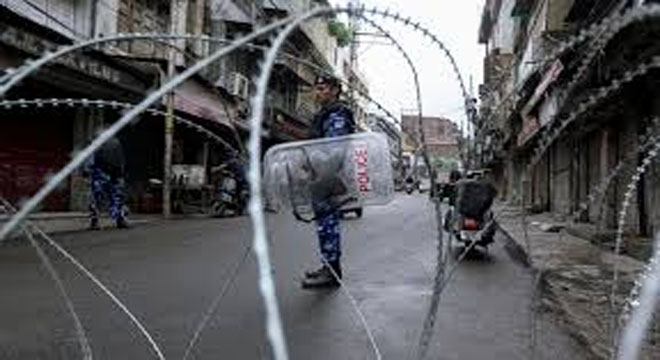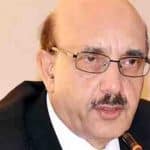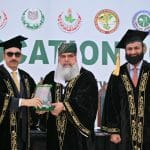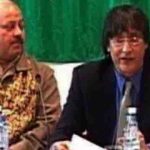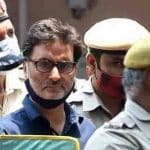Indian Occupied Jammu and Kashmir has witnessed unprecedented constitutional, political and socio-economic engineering since the nullification of Articles 370 and 35A of the Indian constitution, bifurcation of the state and its conversion to a Union Territory.
The implementation of the BJP’s ideological and civilizational agenda towards Kashmir was expedited after the abrogation of Article 370. Beyond the international eye, New Delhi has silently enforced a process of political, constitutional, cultural and economic disempowerment to ultimately turn Kashmir into a Hindu majority state.
Recently, Indian Prime Minister Narendra Modi held an All-Party meeting with the unionist leaders of Occupied Kashmir aimed to spread the narrative of normalization across the world and seek the APC participants’ collaboration to implement the delimitation of the assembly constituencies without making any reconciliatory gestures or announcing fresh confidence-building measures. It is widely believed in Occupied kashmir that the insistence on the delimitation is meant to increase non-Muslims seats in the assembly so that a Hindu chief minister can be installed which has been an ideological dream of the BJP for a long time.
Conversely, the restoration of full statehood with the same constitutional and administrative powers is an overwhelming demand by the pro-Indian parties including Congress, ahead of the state election. The BJP seems willing to revive the statehood, provided all major administrative powers such as maintaining law and order, and financial authority are vested in New Delhi with a powerful lieutenant governor, instead of the elected chief executive, after completing the delimitation exercise. It seems like this proposition has no attraction for the pro-India Kashmiri politicians.
New Delhi was expecting that direct rule over Kashmir would open up new economic and political opportunities for the local citizens, and the prevailing Kashmir conflict-centric narrative and identity would gradually vanish. On the contrary, the people of Ladakh and even Jammu are echoing Kashmiris’ demands for the restoration of full statehood. A sizable number of Hindu and Buddhist leaders and civil activists also insist on the revival of Articles 370 and 35A, considering it a means to protect local inhabitants’ identity, jobs security and land rights.
Indian Occupied Kashmir went through massive economic losses due to the lockdown, suspension of the internet and political turmoil followed by the Covid-19 pandemic since the abrogation of Article 370. A Srinagar based business organization Kashmir Economic Alliance reveals that business activities remained closed for 11 months during the last two years which caused a loss of approximately Rs70,000 crore to the local entrepreneurs. Given the expected fourth wave of the Covid-19 pandemic, further economic losses are imminent.
On the other hand, India has not gained much by revoking Article 370 as it has remained unable to muster political and public support for its action so far. It has not only lost credibility, reputation and prestige in the eyes of the Kashmiris but has also politically marginalized its allies in Occupied Kashmir with a single stroke.
For instance, in the last month, the Concerned Citizens’ Group, a leading Indian civil society initiative visited Occupied Kashmir and had in-depth conversations with representatives from all walks of life. The group observed: “It seems that the people of Kashmir Valley now have virtually no expectation either from the people of India or from the state machinery in Delhi and Srinagar”. It further noted that “the people’s mood was marked by lack of expectations from the state, a pervasive sense of hopelessness not witnessed by this Group earlier and deep-seated despondency in the youth. They have come to believe that there is no political space left for them, their rights have been taken away and that no one is inclined to listen to them”.
The thaw which led to the resumption of the ceasefire along the Line of Control (LoC) in February 2021 has not stopped or slowed down the sustained process of complete disempowerment of the Kashmiri Muslim community initiated by New Delhi. The ceasefire had stirred hope that concrete steps may follow to ensure stability inside Kashmir by reducing curbs on political activities, releasing Kashmiri prisoners and halting military operations signifying the massive human rights violation as well as the devastation of citizen properties which is labelled as collateral damage – but no tangible forward movement in this regard has been recorded.
Although the relationship between India and Pakistan reached its lowest ebb during the last two years, the back-channel contacts turned into a ceasefire along the LoC which is still in place despite a few violations. Pakistani authorities made several positive gestures to pull India into the dialogue process. Even Chief of Army Staff Gen Qamar Javed Bajwa went the extra mile, offering to bury the past and write a new chapter in bilateral relations. No reciprocal gesture was shown from New Delhi. Neither did human rights conditions improve in Kashmir nor were over 4000 Kashmiri dissidents and pro-freedom leaders released.
Consequently, the window of opportunity ceased to exist to great extent. Recently, Dr Moeed Yusuf, National Security Advisor, lamented while talking to several media outlets that New Delhi has not taken the required steps to create an environment conducive for dialogue. He confirmed that back-channel contacts are no longer in place.
It is time to realize that no unilateral solution to the Jammu and Kashmir issue is possible nor is the present status quo maintainable. Resumption of dialogue and involvement of all Kashmiri stakeholders in the dialogue process is imperative to find a lasting solution. The last two years show that the people of Kashmir seek peace and support the normalization of India and Pakistan relations but with dignity, and are not willing to compromise on their fundamental position on the Kashmir issue which is based on the right to choose their destiny in a free and impartial manner.
The writer is a freelance contributor.
Email: [email protected]
Follow the PNI Facebook page for the latest news and updates.


